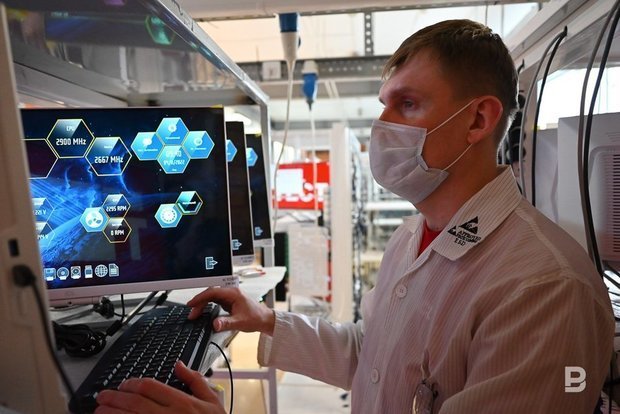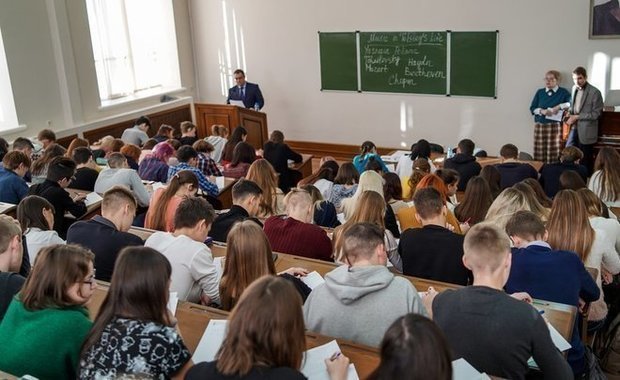Andrey Finokhin: ‘Sanctions have become an impetus for Russian developers’
Russia intends to reduce the coefficient of technological dependence of the country by 2,5 times by increasing innovation and patent activity. To this end, venture investors will be granted the “right to risk” and will strengthen tax incentives for the commercialisation of intellectual activity results. Andrey Finokhin, the chairman of the Innovation Committee of the Chamber of Commerce and Industry of the Republic of Tatarstan, tells about the current situation and prospects of the Russian innovation market in the author's column for Realnoe Vremya.
“The previous year has certainly been a success”
The previous year has shaken up all sectors of the economy, including the innovation sector. For some, it has become a year of new opportunities, for others — a period of panic. Western vendors (software developers), for example SAP or Oracle, have left Russia, their solutions are focused on large businesses. Some vendors have left not only without the possibility to extend the licensed use, but even with the deletion of their customers' accounts and data.
Thousands of sanctions in 2022 were the impetus for a breakthrough for Russian developers. In my opinion, the previous year was certainly successful.
Yes, maybe it has become more difficult to find suitable employees or it has become more difficult to retain them. The companies that are loyal to the remote work of employees have not experienced any problems with personnel. And those who want to handcuff an employee to his workplace, of course, will face a shortage of personnel. My employees left to work in other countries, some returned, some stayed — no one quit.
There will be no surplus of IT specialists — absolutely every area will soon be permeated with IT. For example, today we cook our own food, and tomorrow it will be a robot. Not chefs will be needed, but those who design robot cooks. In the 2000s, they talked about the overflow of labour market by economists and lawyers, but try to find professionals. So, recently I have had to buy a patent from an American company — let someone call me and immediately tell me how to do it.
Those who could adapt quickly, they went uphill
Domestic IT solutions did not reach the world level of quality and reliability. And big business worked on Western developments. Those who were able to adapt, to bring the product to mind and tell the client “I am the same as the Western product, but ours”, they went uphill.
My product has Western analogues, they left the Russian market, and the business began to turn to us. So do our other colleagues in the IT sector — new prospects have appeared.
Today, domestic software developers have solutions for large, medium-sized businesses and the public sector. There have always been analogues — if there is no Snickers on the shelf, then there is always a Step chocolate bar. They just didn't pay attention to domestic solutions. Those who actively worked on their IT product began to find customers. And those who demanded support, grants, those say: “The year 2022 was unsuccessful.”
Innovations are not only IT, they are developments for petrochemistry, agribusiness, and medicine. Russia is a primary producing country. All new solutions that help to extract resources faster, more efficiently and cheaper are very promising. Now innovations are more often introduced by those who have more money, desire to improve, and high competition in the market. If we take the top 10 companies of Tatarstan, they are all ready to invest in innovations.

Either they are out of touch with reality, or they cannot find their application
The mission of our committee is to help “land” existing technologies on republican enterprises. We have such point — “The future has already come, but it is unevenly distributed.” Our task is to reach those enterprises that still live in the 1990s in the future. Today, there are probably 90 percent of them. I find it difficult to name those who have leapt forward in technology by leaps and bounds. Even on a national scale, such people can be counted on the fingers.
Many may disagree with me and object. For example, there are banks that position themselves as digital. Then why do you have to go to their bank branch when opening a checking account and write a handwritten application on paper?
Innovations are not ideas. The idea is worthless, and if the creator has a product, prototype or patent, then it can already be called something real. Universities can call themselves technological, but ask for statistics on how many of the patents created have found application in life — the indicators will be disappointing.
Most of the works go “on the table”: either they are out of touch with reality, or they cannot find a customer. There is a barrier between businesses and scientists, and universities have KPI calculated by written works, not by implemented ones. Plus, institutes and universities are taught by people who have nothing to do with business. It turns out like this — they just write something, but whether it is necessary is another matter.

Businesses also began to actively invest in development
Certainly, the sphere of innovation in Russia is supported today. It includes smart and talented innovators. When I got engaged in innovations 14 years ago, there was no such attention and support. For example, the Digital Breakthrough project and many other bright events allow you to identify relevant and necessary products. There have become more grants and their size has grown.
But it has become more difficult to maintain independence. Many people dream of a garage, from which a large IT company will grow. But the events for the selection of projects are organised by big businesses, the personnel are “vacuumed”. Young developers have concerns that their ideas and developments will be scattered in a large company, and they will lose themselves as an individual.
The public sector is the leader in supporting innovative products, but businesses have also begun to invest in development. There is such a phenomenon as corporate accelerators. Advanced companies do not go to the market for a solution, they announce a competition, help developers refine products to their standards: “Give ideas, and we will help pack them into a project for implementation.”
It has become easier for companies to find a team, buy a startup, grow it for themselves so that it continues to work as part of the company. At the same time, you can give a share of independence — they seem to play by your rules, but they develop the product themselves.
Someone today lives in expectation of a miracle, waiting for magical support. I am not one of those who wait, I proceed from the principle that what you sow today, you will eat in the following years. And I'm getting ready for a rich harvest. The year 2023 is the year of great opportunities, the year of promising projects.
Of course, there is more work, but it will bring more results. I am living in three cities now — Mendeleevsk, Kazan, Moscow, or Moscow, Innopolis, Kazan. I am constantly in touch no matter where I am — in a taxi, plane or car. Anyone who wants a breakthrough, wants to earn, succeed, needs to urgently revise the schedule. It is necessary to work not sluggish 8 hours a day, but 12-14. This is my advice to those who work in the field of innovations.
Reference
The author's opinion may not coincide with the position of the editorial board of Realnoe Vremya.